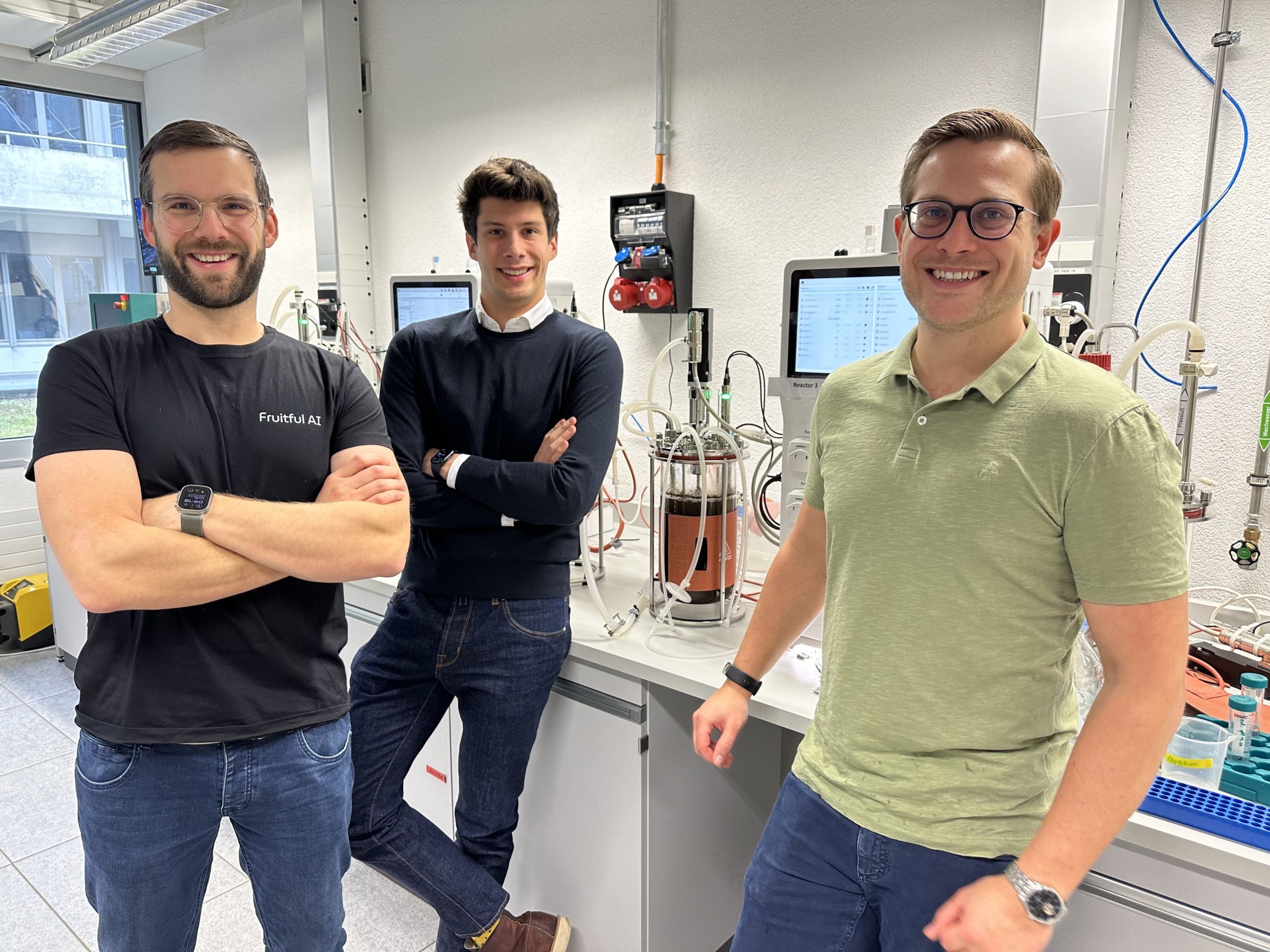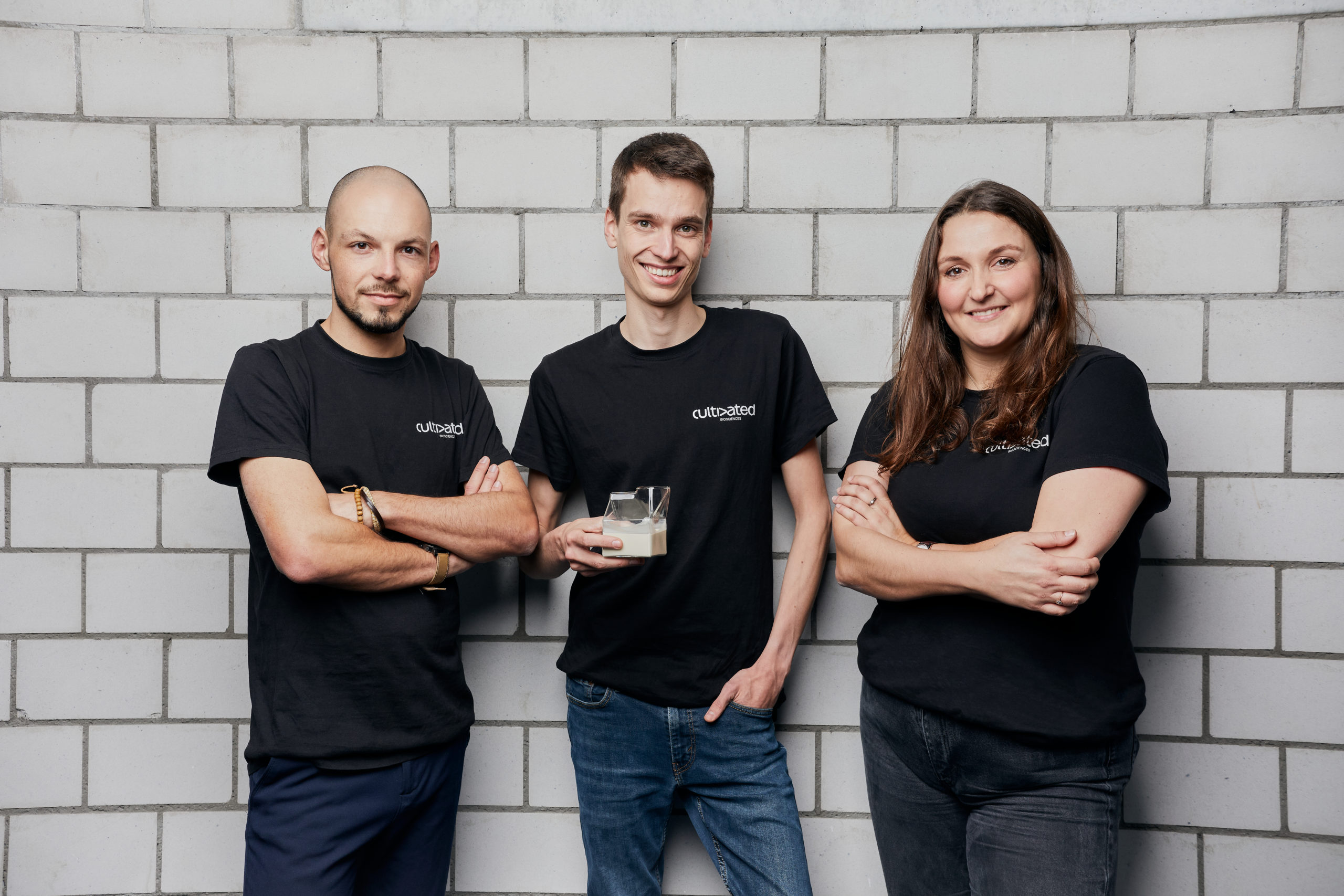Empowering citizens to drive food...
Food Brewer and Fruitful AI join forces to drive efficiency in cellular agriculture
Food Brewer and Fruitful AI join forces to drive efficiency in cellular agriculture

Switzerland-based food and food ingredients company Food Brewer teams up with Fruitful AI to use their advanced computer vision tools to create an automated media screening and cell selection platform. Food Brewer is developing a platform technology to produce food and food ingredients, starting with non-GMO cacao and coffee. The optimisation of ingredient and media formulations allows the Food Brewer team to identify the fastest-growing plant cells and devise the best formulations in record-breaking time. With advanced data-driven insights from Fruitful AI, the partnership sets a new precedent for the future of sustainable cellular agriculture practices.
📒 The background
SFNV: Tell us a bit about the key issues you address.
Christopher Keim: At Food Brewer we’re developing a platform technology to produce food and food ingredients, starting with non-GMO cacao and coffee. The urgency for change stemmed from the environmental impact of conventional practices, including deforestation, loss of biodiversity, high water usage, food waste, and greenhouse gas emissions. By incorporating AI tools and technologies like computer vision to track the growth of plant cells, we’re able to enhance the efficiency, quality, and reproducibility of our platform.
Patrick Albrecht: At Fruitful AI, our focus lies in objective automated quality assessments by providing food manufacturers, among others, with advanced data-driven insights. These insights, derived from our AI tools, allow for optimised resource allocation and improved monitoring of plant cell growth, potentially leading to increased efficiency and sustainability within current cellular agriculture practices. We believe this collaborative approach, exemplified by our partnership with Food Brewer, can lead to significant positive impacts on the future of the food system.
🤩 The opportunity
SFNV: What made you believe this collaboration would positively impact your work?
Christopher Keim: This collaboration emerged from a shared commitment to address sustainability challenges in the agricultural food market and is a response to a need for transformative solutions. After carefully examining the challenges associated with traditional plant cell growth methods, we identified this as an opportunity to implement innovative approaches in our production processes with the aid of Fruitful AI’s strong AI expertise.
Patrick Albrecht: Our shared passion for innovation in the Swiss food and beverage scene is what catalysed this collaboration. We recognise Switzerland’s prominence in the industry and admire the pioneering spirit of its leading companies. Food Brewer’s commitment to cell-cultured food development is a perfect fit for our AI expertise, and as such, we’re able to contribute Fruitful AI’s advanced tools for plant cell growth monitoring while Food Brewer leverages this technology to optimise its production processes.
💡 The solution
SFNV: What’s changed for you since this collaboration started? What are you most excited about?
Christopher Keim: Since collaborating with Fruitful AI we’ve established an automated media screening platform to optimise the nutrient formulation for our plant cells. This allows us to mimic natural growth conditions and help them grow efficiently in a healthy environment. Together with Fruitful AI and our plant tissue expert’s domain expertise we train the algorithms to independently detect and track plant tissue growth over time. In this way, the team can not only identify the fastest-growing plant cells and devise the best formulations in record-breaking time, but they are also able to determine and preserve the quality of the plant cells over a long period.
Patrick Albrecht: Since forming this partnership we’ve witnessed a refinement of both our AI tools and Food Brewer’s production processes. What we’re most excited about is the potential to revolutionise the future of food production. We see immense potential for impact in optimising resource usage, enhancing sustainability, and ensuring food security for a growing global population. This collaboration is a great example of the power of ‘growing the pie together,’ where innovation leads to positive change for all stakeholders, including consumers, the environment, and the future of food.
👀 What’s next?
SFNV: What does a food system that is fit for the future look like to you? What changes are needed?
Christopher Keim: For us, a food system fit for the future involves the widespread adoption of sustainable and scalable food production practices. With Food Brewer’s technology we provide partners in Switzerland the means to overcome the challenges of sustainable food production. Together we advance cellular agriculture and reshape the agricultural food market in Switzerland and beyond.
Patrick Albrecht: We envision a future food system that’s sustainable, efficient, and accessible for all. This means minimising waste and diversifying food sources for greater resilience. The key challenge lies in widespread adoption. Collaboration between innovators, producers, and consumers is crucial to get there.
💭 Partner Reflections
Christopher Keim: I find immense value in the innovative contributions this collaboration brings, particularly in addressing sustainability challenges in the agricultural food market. What excites me most is the potential for transformative impact, leveraging cutting-edge technologies to create a more sustainable and efficient future in food production.
Patrick Albrecht: Partnerships like these bring about an ingenuity that reinforces the power of collective innovation. I believe our combined expertise creates value by pushing the boundaries of both food science and AI, and I’m excited about the potential that holds in revolutionising the food industry and building a sustainable future together.
About Food Brewer
Food Brewer is a food and food ingredients company using plant cell cultures. We focus development, and marketing of pioneering technologies for large-scale cultivation in brewing tanks as an alternative to conventional agriculture. We secure key resources for the food industry and eliminate geographic, climatic, and seasonal challenges.
About Fruitful AI
Fruitful AI leverages advanced computer vision to develop AI-powered inspection systems. These systems can:
- Identify and flag defects in various industries, even those as small as micrometers.
- Optimize production processes by providing real-time data and insights.
- Ensure consistent high-quality products through automated visual analysis.
Never miss a Swiss food innovation morsel.
Latest News
Christina Senn-Jakobsen: Empowering citizens to drive food system transformation
2024: Taking a big step towards a more future-proof food system
2024 Taking a big step towards a more...
Givaudan and Moonshot Pirates work together to shape the future of alternative protein
Valley partner, Givaudan, a global...
Swiss Food & Nutrition Valley and The Cultured Hub bring together experts and industry to accelerate cultured food to market
On 4th December 2024, Swiss Food &...












